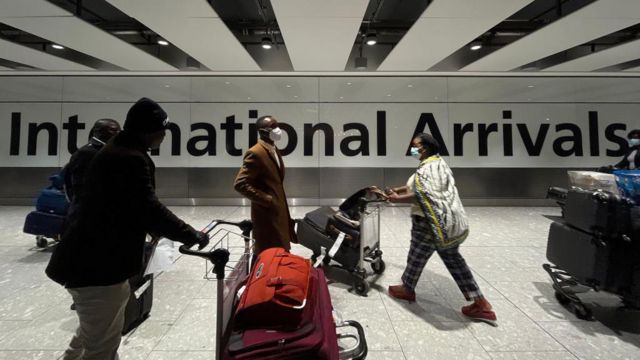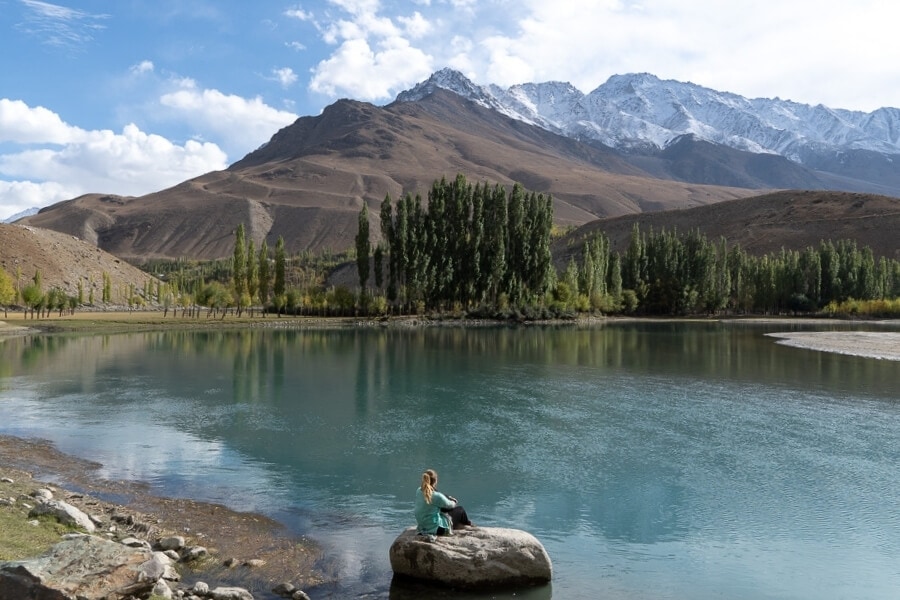The New Japa Wave: Nigerians Are Now Migrating to Countries You’ve Never Considered

Beyond the Obvious Map
A popular joke across African social media goes something like this: If you can’t find Nigerians somewhere, that place is probably uninhabitable. From the bustling streets of London to the quiet suburbs of Auckland, the green passport has a habit of showing up in unexpected corners of the world.
But over the last few years, that joke has gained a twist. Nigerians are no longer only appearing in London high streets, Toronto suburbs, or Houston malls. They are now popping up in far less predictable places and cities where many Nigerians have never even searched on Google Maps.
While the first Japa wavesaw a massive exodus to traditional destinations like the UK, US, and Canada, a quieter, more experimental trend is taking root. Nigerians are now heading to countries once dismissed as “too far,” “too strange,” or “too risky.”
From the mountain valleys of Georgia in Eastern Europe to the colourful streets of Paraguay in South America, the migration story is being rewritten.
The First Japa Wave – Familiar Routes, Familiar Dreams
The word, Japa which is a Yoruba expression meaning “to run away”, entered everyday Nigerian slang in the late 2010s, but the instinct to migrate goes back decades.
In the 1970s and 1980s, political upheavals and economic crises sparked the first large-scale migration wave. Many of those who left were academics, professionals, and students heading to the United Kingdom, the United States, and later Canada.
The attraction was clear. There was shared language, relatively easy entry at the time, and better career prospects.
By the 2010s, a second Japa wave took off. This time, insecurity, youth unemployment, and a sharply devalued naira pushed a younger generation to seek opportunities abroad.
Study visas became the most common route, followed by skilled worker programs. Popular destinations were so entrenched that “japa” practically meant the UK, Canada, or the US.
However, cracks began to appear in the dream as tougher visa rules in countries like Canada raised the entry points for skilled migration, while the UK tightened work visa categories.
Also, with the high living costs, new migrants found themselves spending most of their earnings on rent and utilities. Let’s not forget the saturated job markets. In some cities, Nigerian professionals struggled to find work in their fields, ending up in survival jobs.
These frustrations opened the door to a new question: what if the world had more to offer than just the same three destinations?
Social Insight
Navigate the Rhythms of African Communities
Bold Conversations. Real Impact. True Narratives.
The New Japa Wave – A Shift in Direction
From around 2022 onwards, migration experts and diaspora groups began noticing a quiet but significant trend. The trend of Nigerians applying for and moving to countries outside the traditional migration circuit.
Unlike the earlier waves, where the goal was to join well-established Nigerian communities abroad, this new movement is more pioneering in spirit. Migrants are choosing places where they might be among the first few dozen Nigerians in the area.
Push factors like escalating insecurity and economic instability at home, repeated visa denials from traditional countries, depreciating currency started making Western relocation financially daunting.
Pull factors like visa-free or easy e-visa entry to certain countries, affordable housing and living expenses and emerging job markets with less competition from other migrants started to draw the more Nigerians to migrate there.

Photo Credit: Google
Unlikely Destinations Nigerians Are Now Choosing
1. Eastern Europe – Georgia, Albania, Serbia, Armenia
Once overlooked, these countries are gaining attention for their straightforward immigration rules and affordability.
Georgia allows Nigerians to stay for up to a year without a visa, making it ideal for remote workers and entrepreneurs.
Albania offers work permits with minimal bureaucracy, and its capital, Tirana, is fast becoming a hub for start-ups.
Serbia welcomes English speakers in the IT and tourism sectors.
Armenia is known for its low taxes and friendly business environment.
2. Latin America – Paraguay, Uruguay, Ecuador
South America’s migration pathways remain under the radar for most Nigerians, but they are attractive for their residency options and relaxed lifestyle.
Social Insight
Navigate the Rhythms of African Communities
Bold Conversations. Real Impact. True Narratives.
Paraguay offers permanent residency after a modest bank deposit of around $5,000.
Uruguay is known for its safety, political stability, and openness to foreign professionals.
Ecuador combines affordability with stunning natural scenery and a growing expat scene.
3. Asia – Vietnam, Malaysia, Thailand
For young professionals and entrepreneurs, Southeast Asia offers a unique balance of low living costs and growing economies.
Vietnam has booming tourism and education industries that create opportunities for English-speaking workers.
Malaysia is multicultural, English-friendly, and well-connected to global markets.
Thailand has attractive digital nomad visas and a strong hospitality sector.
4. Middle East & North Africa – Oman, Morocco, Qatar
Closer to Nigeria and culturally more familiar, these regions draw skilled and semi-skilled workers.
Oman offers tax-free salaries and often includes housing in job contracts.
Morocco has a blend of African and European cultural influences, with emerging industries in renewable energy and tourism.
Qatar hosts a wide range of professional opportunities, particularly in construction, education, and healthcare.
The Appeal – Why the Road Less Travelled is Winning
1. Lower Visa Rejection Rates: Applications are processed faster, with fewer complicated requirements.
Social Insight
Navigate the Rhythms of African Communities
Bold Conversations. Real Impact. True Narratives.
2. Residency and Citizenship Paths: Many of these countries allow permanent residency after just a few years.
3. Affordability: Rent in parts of Eastern Europe or Southeast Asia can be less than ₦100,000 per month for decent accommodation.
4. Business Opportunities: With few Nigerians already established, there is space for niche businesses including Afro food shops and logistics services.
5. Lifestyle Change: Smaller populations, cleaner environments, and slower paces of life provide relief from Nigeria’s constant hustle.
Risks and Challenges
This adventurous approach to migration is not without its downsides.
Language Barriers: In Paraguay, Spanish is essential; in Georgia, Georgian and Russian dominate daily interactions.
Cultural Isolation: Without a strong Nigerian community, newcomers may feel homesick or disconnected.
Economic Uncertainty: Some of these economies are still developing, meaning fewer formal job opportunities.
Policy Volatility: Immigration rules can change abruptly, potentially leaving migrants without clear legal status.
The Next Frontier – Where the Trend Could Go
If current patterns hold, the next decade may see Nigerians expanding into even more unconventional locations like:
Pacific Nations: Fiji and Papua New Guinea for niche tourism and trade roles.
Baltic States: Latvia, Lithuania, and Estonia for tech-focused migration.
African Intra-Migration: Botswana, Namibia, and Cape Verde for stability and governance advantages.
Social Insight
Navigate the Rhythms of African Communities
Bold Conversations. Real Impact. True Narratives.
This diversification will not only spread Nigerian influence further but also create new diaspora hubs in regions where it barely exists today.

Photo Credit: Google
Rewriting the Japa Story
The Japa narrative is no longer a straight line from Lagos to London or from Abuja to Toronto. It has become a sprawling, unpredictable map dotted with new pins in places that once barely registered in Nigerian conversations.
From the cobblestone streets of Eastern Europe to the coastal cities of South America and the bustling markets of Southeast Asia, Nigerians are proving that opportunity can be found in the most unexpected corners of the globe.
This new wave is not just about leaving, it is about daring. Daring to learn new languages, start businesses from scratch, and live in societies that are unfamiliar yet full of promise.
And as more Nigerians trade traditional migration routes
for lesser-known ones, the old joke about Nigerians being everywhere might need an update. Because at this rate, if you can’t find Nigerians in a place, it might not be long before that changes.
Recommended Articles
There are no posts under this category.You may also like...
If Gender Is a Social Construct, Who Built It And Why Are We Still Living Inside It?

If gender is a social construct, who built it—and why does it still shape our lives? This deep dive explores power, colo...
Be Honest: Are You Actually Funny or Just Loud? Find Your Humour Type

Are you actually funny or just loud? Discover your humour type—from sarcastic to accidental comedian—and learn how your ...
Ndidi's Besiktas Revelation: Why He Chose Turkey Over Man Utd Dreams

Super Eagles midfielder Wilfred Ndidi explained his decision to join Besiktas, citing the club's appealing project, stro...
Tom Hardy Returns! Venom Roars Back to the Big Screen in New Movie!

Two years after its last cinematic outing, Venom is set to return in an animated feature film from Sony Pictures Animati...
Marvel Shakes Up Spider-Verse with Nicolas Cage's Groundbreaking New Series!

Nicolas Cage is set to star as Ben Reilly in the upcoming live-action 'Spider-Noir' series on Prime Video, moving beyond...
Bad Bunny's 'DtMF' Dominates Hot 100 with Chart-Topping Power!

A recent 'Ask Billboard' mailbag delves into Hot 100 chart specifics, featuring Bad Bunny's "DtMF" and Ella Langley's "C...
Shakira Stuns Mexico City with Massive Free Concert Announcement!

Shakira is set to conclude her historic Mexican tour trek with a free concert at Mexico City's iconic Zócalo on March 1,...
Glen Powell Reveals His Unexpected Favorite Christopher Nolan Film

A24's dark comedy "How to Make a Killing" is hitting theaters, starring Glen Powell, Topher Grace, and Jessica Henwick. ...
